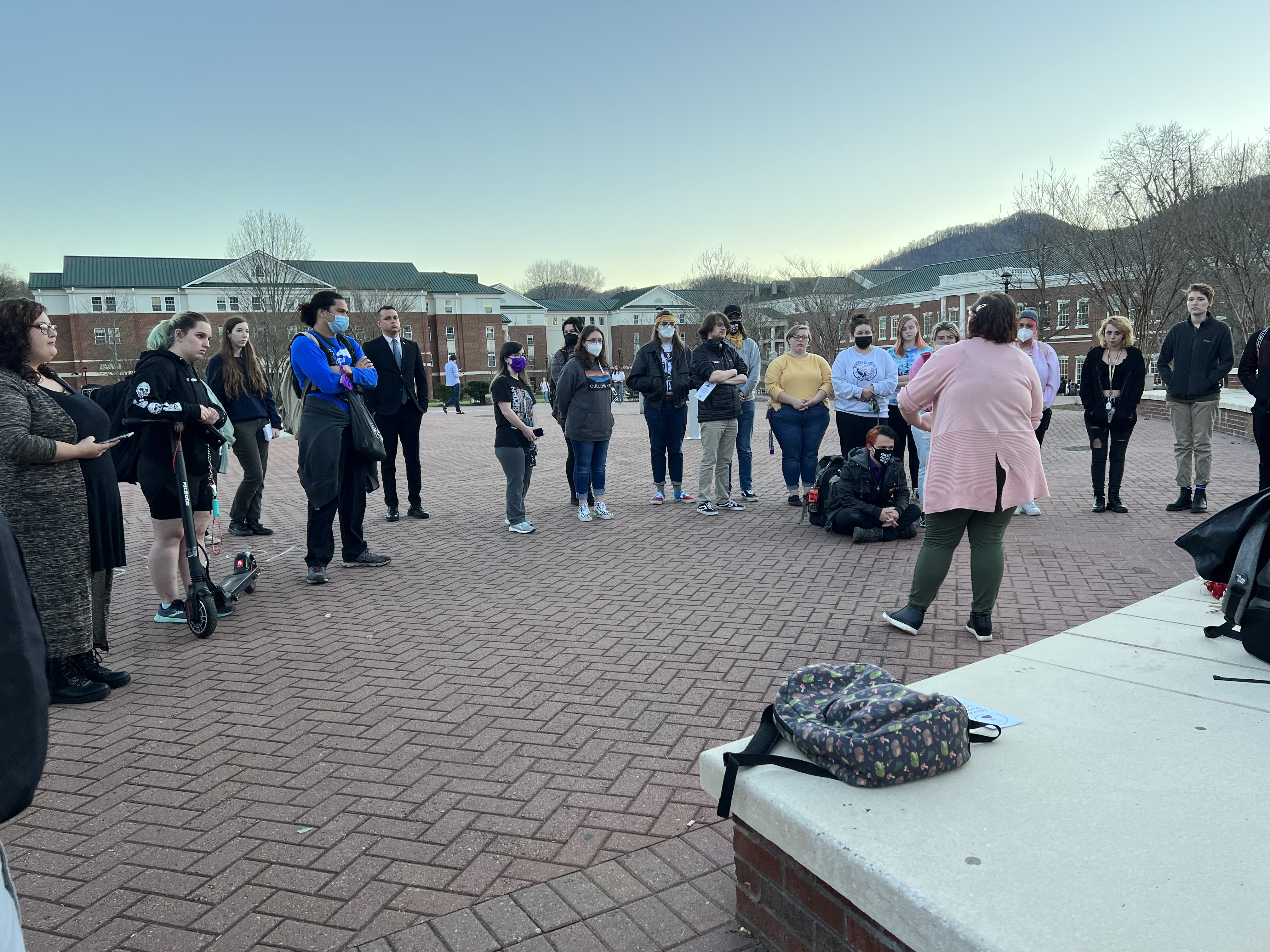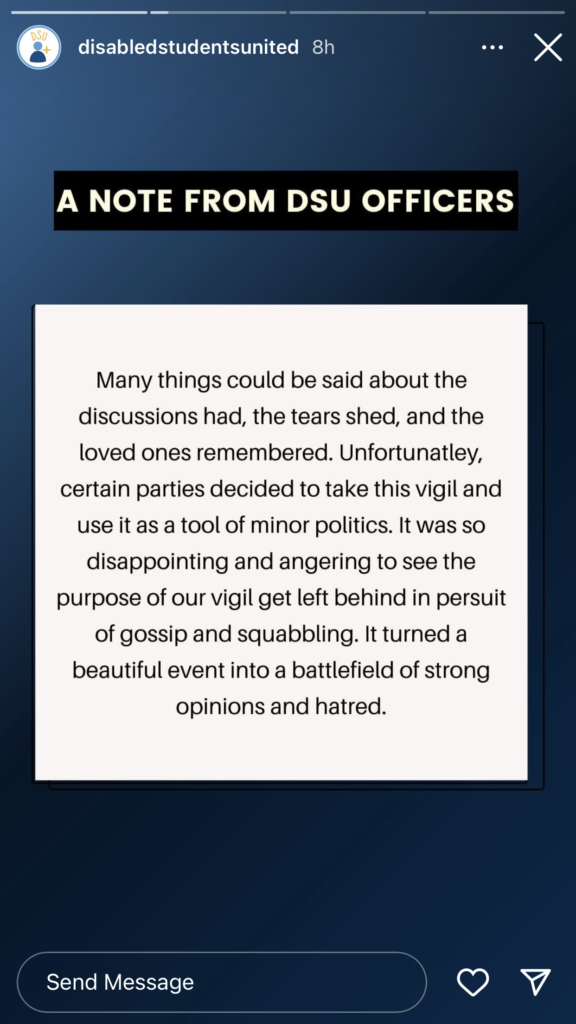
Story co-written with Jessica Stephens.
The Disabled Students United club of WCU held a candlelight vigil for Disability Day of Mourning to commemorate those who lost their lives to filicide.
The event took place on Tuesday, March 1, by the Catafount at 6 p.m. More than 20 students were in attendance. Attendees took turns telling tearful stories about people they knew and how it has impacted them.
Disability Day of Mourning is observed every year on March 1. In the disabled community, the term filicide is used to describe a disabled person who has been killed by a parent or caregiver.
President Chris Hoag took to the DSU Instagram and said to followers, “It was both heart-warming and sad to see how many people were in attendance and to listen to the many stories.”

The club posted on social media about the event but noted that “unfortunately, certain parties decided to take this vigil and use it as a tool of minor politics…turned a beautiful event into a battlefield of strong opinions and hatred.” The club addresses that they advocate for the disabled community and wish to allow their voices be heard versus letting personal opinions speak over the community.
DSU was created in November in 2021 when a group of people with disabilities made a Discord server as a support group. The group became official when Health Science professor, Paige Dagenhard-Trainer, joined as an advisor for the club. Their constitution was finalized at the start of 2022.
There are currently 5 officers: President Chris Hogan (he/him), VP Rei Feeley (she/her), Secretary Haze O’Carroll (they/them/e/em), Treasurer Magen Naef (she/her), and Social Media/Event Coordinator Aeryn Colton (they/he). Meetings are every other Friday online at 6 p.m.
“Our main goals are educating and accessibility. It is a continuous learning process with a ‘no size, fits all’ situation,” explains Colton. WCU does offer accommodations and resources like OAR and CAPS, but still falls short to fulfilling students needs.
The club has hosted events in the past like educating allies, learning disability terms, and fun activities.
DSU tries to call attention to accessibility issues around the school. For people with disabilities, these issues are a major obstacle to their education and personal wellbeing.
“Whenever the elevator is broke down, like in Apadaca, what do you do?” said Naef. Naef is an ally to the disabled community, and has many friends who struggle with accessibility on campus. Students can put in maintenance requests, but it is up to the school to fix these problems.
Colton believes Western has basic resources and accommodations for disabled students. They believe it is not the school’s fault, but the students are the ones who are in charge of fixing these issues.
There are numerous concerns the community has, such as crimes, un-feasible curriculum for disabilities, and inaccessible buildings. Accommodations are often turned down or not followed through on like housing, ESAs, academic, health and dietary restrictions. Students are constantly addressing these issues, but there is little to be done.
“This is our lives we are talking about, and we all have the same end goal,” Colton says.
Students come to WCU to learn and have college experience. For normal students, these are minor inconveniences. For the disabled community, these issues make their everyday struggle worse even though WCU’s creed says, “I will value diversity, inclusive excellence, and individual differences.”



